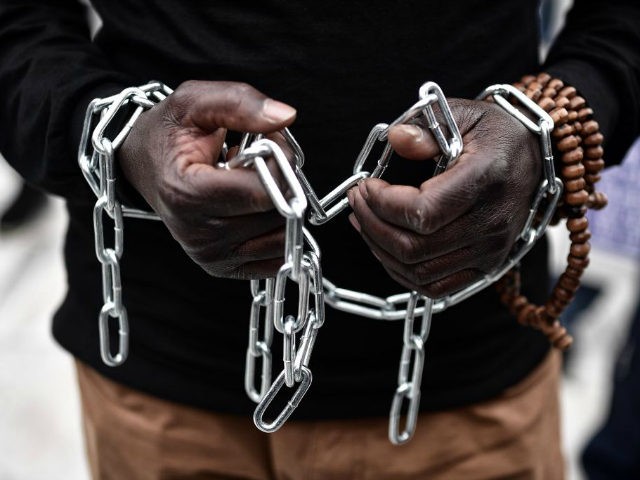Africa currently has the highest prevalency of modern-day slavery, four hundred years since the transaltantic slave trade began during the 15th century.
Reports state that seven out of every 1,000 Africans are victims of the terrible practice. Slavery is defined as “situations of exploitation that a person cannot refuse or leave because of threats, violence, coercion, deception, and/or abuse of power,” in a report by the by human rights group Walk Free Foundation and the International Labour Office.
In 2017, the Global Slavery Index listed Eritrea, Burundi, the Central African Republic, Mauritania, and South Sudan on its list of the 10 countries with the highest prevalance of slavery.
The website states:
It is a confronting reality that even in the present day, men, women and children all over the world remain victims of modern slavery. They are bought and sold in public markets, forced to marry against their will and provide labour under the guise of “marriage,” forced to work inside clandestine factories on the promise of a salary that is often withheld, or on fishing boats where men and boys toil under threats of violence. They are forced to work on construction sites, in stores, on farms, or in homes as maids. Labour extracted through force, coercion, or threats produces some of the food we eat, the clothes we wear, and the footballs we kick. The minerals that men, women, and children have been made to extract from mines find their way into cosmetics, electronics, and cars, among many other products.
Last week, House Speaker Nancy Pelosi visited Ghana to mark its “Year of the Return” in observance of the 400th anniversary of the first African slaves being brought to the United States.
“At Cape Coast Castle we stood before The Door of No Return, where countless millions caught their last glimpse of Africa before they were shipped to a life of enslavement,” Pelosi commented.
Reports state that the African continent received global attention in recent years after videos surfaced online allegedly showing modern “slave markets” in Libya where people were auctioned off in garages and public squares.
In May of 2017, Mohammed Abdiker, the International Organization for Migration (IOM) director of operation and emergencies, said “the situation is dire,” Breitbart News reported.
“The more IOM engages inside Libya, the more we learn that it is a vale of tears for many migrants. Some reports are truly horrifying and the latest reports of ‘slave markets’ for migrants can be added to a long list of outrages,” Abdiker concluded.

COMMENTS
Please let us know if you're having issues with commenting.